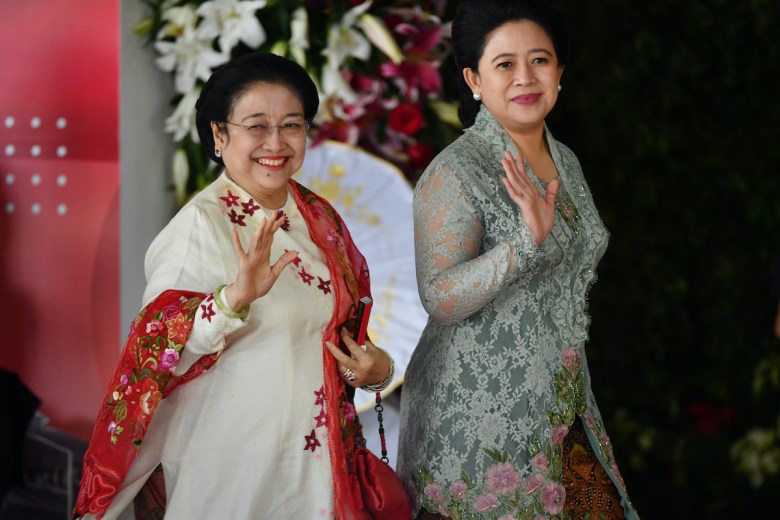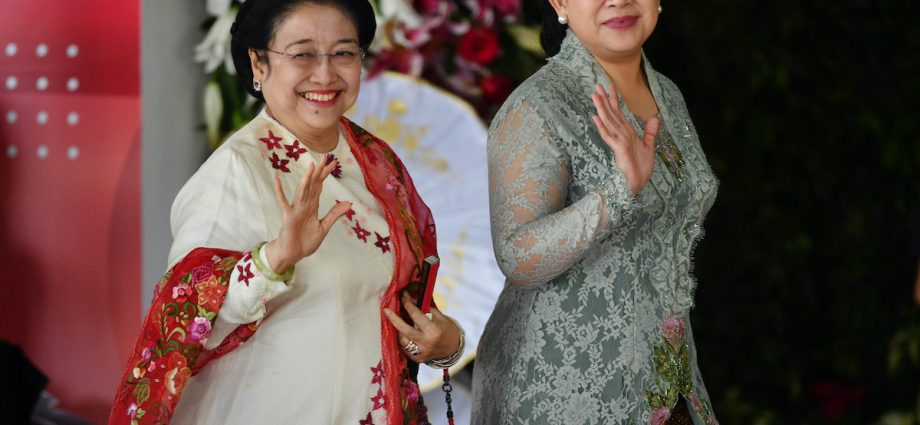JAKARTA – President Joko Widodo’s army of zealous followers hasn’t given up yet on their mission to extend his political career beyond the 2024 presidential and general elections, but even he appears genuinely perplexed at their latest push to have him run as a vice-presidential candidate.
The novel idea of a former president standing for the vice-presidency attracted more attention than usual because it was raised by Constitutional Court spokesman Fajar Laksono, who hails from Widodo’s Central Java hometown of Solo.
Laksono’s comment appeared to contradict a remark he made in an interview with Tempo magazine in February 2018 in which he was quoted as saying: “Legally, no person should be a president or vice-president for more than two terms.”
An added embarrassment for Widodo is that his sister-in-law, Idayati, 56, is the wife of Constitutional Court Chief Justice Anwar Usman, 65, who was elected to the post in 2018 following a graft scandal that ended in the dismissal of fellow jurist Patrialis Akbar.
The couple married in May last year, three years after her first husband died of a stroke. Political Coordinating Minister Mahfud MD felt compelled to explain at the time: “There is no law violation or ethical violation in the chief justice’s plan to get married.”
Although Widodo’s future continues to remain a subject of media speculation at a time of heightened political jostling, the most recent trial balloon was hastily shot down in an official response by the court itself, which described it as a personal view.
“The statement regarding the issue in question is not an official statement and is not related to the implementation of the authority of the Constitutional Court of the Republic of Indonesia,” it said.
Respected Jimly Asshiddique, the court’s first chief justice when it was installed in 2003, weighed in as well, arguing that a president can only serve two five-year terms. “After that, he is no longer allowed, including being vice-president,” he asserted.
Three of the nine Constitutional Court justices (including Usman) are nominated by Parliament, three by the president and three by the Supreme Court with presidential approval required for all of the appointments.

Widodo himself denied he had ever raised the vice-presidential issue. “Who is this from?” he asked reporters. “If it was from me I would have explained it. But it’s not and I don’t want to get angry about it.”
Last April, Widodo ordered his followers to stop talking about an extension to his second term in what was his first clear effort to put to bed a controversy that raised concerns about a backward step for Indonesian democracy.
“No one brings up the matter of an extension or a (election) delay anymore,” he declared in his remarks to a weekly Cabinet meeting at the time. “No more. Concentrate on managing the (economic) difficulties we are facing.”
Two months later, the discourse resurfaced and has continued to bubble beneath the surface, even though preparations for the forthcoming elections have reached a stage that suggests the move is no longer on the cards.
Led by Pro-Jokowi (Projo), a non-party mass organization, the campaign had gathered pace after the Covid-19 pandemic proved a major setback for Widodo’s agenda, including his plan to move the national capital from Jakarta to East Kalimantan.
Analysts believe the 61-year-old president’s endorsement will be a major factor in the choice of his successor, allowing him to retain his influence beyond 2024 as perhaps the head of a major political party.
Some commentators claim he also wants to be in a position to guide the careers of his eldest son, Solo Mayor Gibran Rakabuming, 34, and his son-in-law, Medan Mayor Bobby Nasution, 31, both of whom were elected in February 2021.
Projo, which claims to number in the tens of thousands, is headed by Budi Arie Setiadi, the deputy minister of the Ministry of Villages, Development of Disadvantaged Regions and Transmigration and a prominent student leader in the 1990s.
A member of the ruling Indonesian Democrat Party for Struggle (PDI-P), Setiadi founded the then little-known community organization in 2013 to drum up grassroots support for Widodo in the run-up to the presidential election the following year.
Indonesia’s 1945 Constitution does not specifically rule out a former president running for vice-president. But legal experts say Article 8 implies the positions of president and vice-president are inseparable under the charter’s two-term limit.
Although Widodo’s popularity has taken a hit since he raised fuel prices on September 3, his 62.6% approval rating in the latest Indikator Politik Indonesia poll – down from 72.3% in August – is still a result other world leaders will envy.
Only Indian Prime Minister Narendra Modi (75) and Mexican President Andres Manuel Lopez Obrador (68%) have higher marks in Morning Consult’s September list of ratings for 21 selected leaders. New Australian Prime Minister Anthony Albanese follows on 59%.
What is interesting, however, is that in all Indonesian surveys an equal number of respondents don’t want Widodo to serve a third term, which experts say can only be achieved through a constitutional amendment.
That opportunity beckoned if the leadership of the 711-seat People’s Consultative Assembly (MPR), Indonesia’s highest legislative body, had pushed ahead with an amendment on state policy-making.

But the plan was dropped when it became clear it could open the door to an extension – even if the proposal appeared to have little chance of passing the combined People’s Representative Council (DPR) and Regional Representative Council (DPD).
PDI-P chairperson Megawati Sukarnoputri, who has a testy relationship with Widodo and whose daughter, House Speaker Puan Maharani, has presidential ambitions of her own, is opposed to a third term – as are most of the major parties.
Even volunteers from the president’s 2014 and 2019 election campaigns have given it the thumbs-down, electing to support poll-topping Central Java Governor Ganjar Pranowo for the presidency because they believe he will carry on the Widodo legacy.

